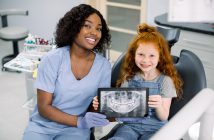Hair loss can be a distressing experience for anyone, but for moms, it can be particularly challenging. Between managing the household, taking care of the kids, and possibly juggling a job, the added stress of hair loss can feel overwhelming. However, understanding the causes, treatments, and ways to manage hair loss can help you regain control and confidence. This comprehensive guide will walk you through everything you need to know about hair loss as a mom.
Causes of Hair Loss in Moms
Hormonal Changes
Hormonal fluctuations are a significant cause of hair loss in women, especially for new moms and those approaching menopause. After giving birth, many women experience a condition called postpartum hair loss. This occurs due to a sudden drop in estrogen levels, causing hair to enter the shedding phase all at once. It’s common to notice significant hair loss a few months after childbirth, but this is usually temporary and should resolve within a year.
Menopause is another period marked by drastic hormonal changes that can affect hair growth. The decrease in estrogen and progesterone levels, combined with an increase in androgens, can lead to thinning hair and hair loss. Understanding these hormonal shifts can help in managing expectations and seeking appropriate treatments.
Stress
Motherhood can be incredibly stressful, with constant demands and limited downtime. Recent childbirth and chronic stress on the body can trigger a condition known as telogen effluvium, which causes a dramatic hair shed. Managing stress through relaxation techniques, adequate sleep, exercise, and self-care practices can be vital in reducing hair loss.
Nutritional Deficiencies
A balanced diet is crucial for maintaining healthy hair, but busy moms often neglect their nutritional needs. Pregnancy and breastfeeding can deplete essential nutrients like iron, zinc, and vitamin D, all of which are important for hair health. Ensuring a nutrient-rich diet or taking supplements, if necessary, can help address these deficiencies and improve hair strength and growth.
Medical Conditions
Certain medical conditions prevalent among women can contribute to hair loss. Thyroid disorders, such as hypothyroidism and hyperthyroidism, can affect hair growth cycles. Polycystic ovary syndrome (PCOS) can also cause hormonal imbalances that lead to hair thinning. Autoimmune diseases like alopecia areata cause the body’s immune system to attack hair follicles, resulting in patchy hair loss. It’s essential to consult a healthcare provider to diagnose and treat any underlying medical conditions.
Genetics
Genetic predisposition plays a significant role in hair loss. Androgenetic alopecia, or female pattern hair loss, is a hereditary condition that can be inherited from either parent. This condition typically causes thinning on the crown and frontal scalp. While genetic hair loss can be more challenging to treat, early intervention can slow its progression and improve hair density. If your parents had hair loss at an early age, it’s very likely that you might experience the same.
Treatment Options for Hair Loss
Over-the-Counter Treatments
Several over-the-counter treatments can help manage hair loss. Minoxidil, commonly known as Rogaine, is a topical treatment that can stimulate hair growth and slow down hair loss. It’s one of the few FDA-approved treatments for female pattern hair loss and can be effective if used consistently. Another option is ketoconazole shampoo, which helps treat scalp conditions that may contribute to hair loss, such as dandruff and seborrheic dermatitis.
Prescription Medications
For more severe cases, prescription medications may be necessary. Finasteride and Dutasteride, typically prescribed for male hair loss, can be used off-label for women under medical supervision. However, these medications are not recommended for women who are pregnant or planning to become pregnant due to potential teratogenic effects. Spironolactone, a medication that reduces androgen levels, is another option for treating hormonal hair loss in women.
Supplements
Nutritional supplements can play a significant role in improving hair health. Iron, zinc, and vitamin D are essential for hair growth and can help if you have deficiencies. Omega-3 fatty acids, found in fish oil supplements, can also improve hair density and reduce shedding. Consulting with a healthcare provider before starting any supplement regimen is crucial to ensure proper dosage and avoid potential interactions with other medications.
Natural and Organic Treatments
Many moms prefer natural and organic treatments for hair loss. Essential oils like rosemary, peppermint, and lavender can promote hair growth and improve scalp health. These oils can be mixed with a carrier oil and massaged into the scalp. Herbal remedies, such as saw palmetto and green tea extract, act as natural DHT blockers and can help reduce hair loss. These treatments are often gentler on the scalp and have fewer side effects than pharmaceutical options.
In-Office Treatments
For those seeking more advanced treatments, several in-office procedures can help. Platelet-Rich Plasma (PRP) therapy involves drawing a small amount of your blood, processing it to concentrate the platelets, and injecting it into the scalp. PRP can stimulate hair follicles and promote new growth. Mesotherapy, another in-office treatment, involves injecting vitamins, enzymes, and other substances directly into the scalp to nourish hair follicles and improve hair growth.
Hairstyles and Hairpieces
While addressing the underlying causes of hair loss, finding hairstyles and hairpieces that enhance your appearance can boost your confidence. Wigs, extensions, and volumizing haircuts can provide immediate solutions and help you feel more comfortable while your hair recovers. Consult a hairstylist who specializes in thinning hair to explore options that work best for you.
Stress Management
Reducing stress is crucial for overall health and can positively impact hair loss. Incorporating exercise, yoga, and meditation into your routine can help manage stress levels. Additionally, ensuring you get enough sleep and practicing good sleep hygiene can support your body’s natural healing processes. Making time for yourself, even with a busy schedule, is essential for both mental and physical well-being.
Finding Help with a Hair Loss Expert
Hair loss can be a challenging experience, but with the right knowledge and support, you can manage it effectively. From understanding the causes to exploring various treatment options. If you’re dealing with hair loss and looking for expert care, consider reaching out to Dr. Ross Kopelman. With extensive experience and a knowledgeable approach, Dr. Kopelman provides personalized treatment plans to address various forms of hair loss. You can schedule an online consultation with Kopelman Hair Restoration or visit their in-person offices in New York City or South Florida. By visiting kopelmanhair.com, you can learn more about the available treatments and take the first step towards regaining your confidence and achieving thicker and healthier hair.




